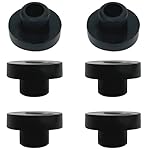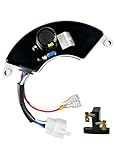Buying a Generator in Japan

* This site contains affiliate links for which we may be compensated.

* This site contains affiliate links for which we may be compensated.
Need backup power in Japan? Here’s a down-to-earth guide to voltages, trusted brands, popular models, and where to buy—plus smart add-ons like a compact inverter generator or a safe transfer switch kit.
Single-Phase Voltage: 100 V / Three-Phase Voltage: 200 V / Frequency (Hertz): 50 Hz (East Japan) & 60 Hz (West Japan) / # of Wires: 2–3 / Plug Type(s): Type A, Type B
What are you looking for?
Generator Brands for Sale in Japan
Japan is home to some of the world’s best generator manufacturers, from portable inverter units to industrial diesel powerhouses. Below are the key brands you’ll come across.
- Honda: Portable and inverter models (EU series) with clean sine-wave output, great for electronics. Typical pricing: ¥120,000–¥350,000. Browse Honda inverter generators.
- Yamaha: Lightweight and quiet inverter series (EF models), popular for camping and small homes. Pricing: ¥100,000–¥280,000. See Yamaha inverter options.
- Denyo: Heavy-duty diesel gensets widely used on construction sites. Pricing by quote, typically 20–200 kVA units.
- Kubota: Compact diesel sets (GL series) built for efficiency and long runtimes. Pricing by quote, often ¥600,000–¥1,200,000.
- Mitsubishi: Large industrial sets with strong after-sales support, ideal for commercial facilities. Pricing by quote only.
- Cummins: International diesel sets for standby/prime power, available via Japan distributors. Pricing by quote.
- Kohler: Premium standby systems with auto-transfer switch support. Pricing by quote.
Best Generator Models in Japan
Choosing the “best” generator depends on your needs—whether it’s camping, disaster preparedness, or standby power for your business. Here are some top picks.
- Honda EU22i / EU30is (inverter): Quiet, fuel-efficient, and perfect for electronics. ~2.2–3.0 kW. Pricing: ~¥130,000–¥280,000.
- Yamaha EF2200iS / EF3000iSE (inverter): Excellent balance of portability and runtime. ~2.2–3.0 kW. Pricing: ~¥110,000–¥260,000.
- Denyo DCA-25 / DCA-45 (diesel): Rugged construction site models. ~25–45 kVA. Quote-based pricing.
- Kubota GL6000 / GL7000 (diesel): Compact, low-noise sets ideal for small businesses or rural homes. ~6–7 kVA. Quote-based.
- Mitsubishi 20–100 kVA gensets: Reliable standby power for offices and factories. Quote-based.
Where to Buy Generators in Japan
Always buy from authorised dealers or large home-improvement chains for warranty coverage and reliable support. Accessories like covers, automatic transfer switches, and CO alarms are easy online buys.
Honda Power Products Japan
- 2-1-1 Minami-Aoyama, Minato-ku, Tokyo
- Contact: +81 3-5412-1111
- Hours: Mon–Fri 9:00 AM – 6:00 PM
Yamaha Motor Power Products
- 2500 Shingai, Iwata-shi, Shizuoka
- Contact: +81 539-26-2000
- Hours: Mon–Fri 9:00 AM – 5:30 PM
Denyo Co., Ltd.
- 2-8-5 Nihonbashi, Chuo-ku, Tokyo
- Contact: +81 3-3516-5600
- Hours: Mon–Fri 9:00 AM – 6:00 PM
Kubota Corporation
- 2-47, Shikitsuhigashi 1-chome, Naniwa-ku, Osaka
- Contact: +81 6-6648-2111
- Hours: Mon–Fri 9:00 AM – 6:00 PM
Mitsubishi Heavy Industries Ltd.
- 3-1-1 Marunouchi, Chiyoda-ku, Tokyo
- Contact: +81 3-3212-3111
- Hours: Mon–Fri 9:00 AM – 6:00 PM
Kohler Japan
- Shinagawa Intercity Tower, Tokyo
- Contact: sales@kohlerjapan.com
- Hours: Mon–Fri 9:00 AM – 6:00 PM
Komeri Hardware Store (Nationwide)
- Multiple locations across Japan
- Contact: via local branch
- Hours: Typically 9:00 AM – 7:00 PM
Kohnan Home Center (Nationwide)
- Multiple locations across Japan
- Contact: via local branch
- Hours: Typically 9:00 AM – 8:00 PM
Japan Generator Buying Guide and Tips
- Right size: Add up your essentials—lights, fridge, router, and heater. Small homes often manage on 1.6–2.2 kW inverters, while businesses may need 5–10+ kW or diesel gensets.
- Noise levels: Many Japanese neighborhoods have strict noise rules. Choose quiet inverter generators under 60 dB for residential use.
- Fuel choice: Petrol inverters are portable and common for short outages. Diesel is efficient for long runtimes. LP gas is also popular due to Japan’s strong LPG distribution.
- Electrical safety: Use licensed electricians for ATS/changeover switch installation. Never back-feed the grid.
- Power quality: Protect sensitive electronics with pure sine wave inverter generators and quality surge protection.
- Maintenance: First oil change within 20 hours, then follow manufacturer’s intervals. Stock oil, filters, and plugs.
- Preparedness: Given Japan’s earthquake risk, keep fuel stabilizers, fuel stabilizer, and spare parts on hand.
Buying Generator in Japan FAQs
How much does generator installation usually cost in Japan?
For a portable generator with manual transfer, expect ¥50,000–¥150,000. A full standby diesel system with ATS and cabling can cost ¥300,000–¥1,000,000+ depending on project scope.
How noisy can a generator be in Japan?
Modern inverters run at 50–60 dB (similar to conversation level). Open-frame petrol units are 70–85 dB, while enclosed diesel units hover around 65–75 dB. Many cities enforce neighborhood noise limits, so quieter units are preferred.
Which generator type and fuel are best for Japan’s climate?
Petrol inverters are best for small households and short outages. Diesel is ideal for businesses and long runtimes. LPG/dual-fuel sets are popular due to Japan’s earthquake preparedness culture and LPG storage safety.
What are the typical warranties for generators in Japan?
Portable petrol units: usually 1–3 years limited. Diesel standby sets: 12–24 months or hour-based coverage when installed by authorized dealers. Always confirm warranty details before purchase.









